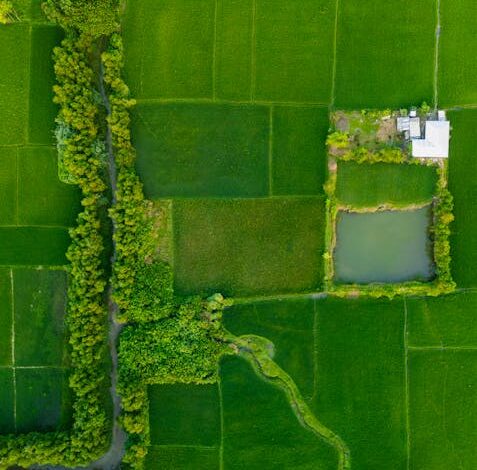The Emerald Green Wall: Ireland’s Tactical Masterclass

In the unpredictable theater of international football, there are moments that etch themselves into the collective memory, defying expectations and rewriting narratives. Wednesday night in Dublin was precisely one of those occasions. Few would have circled the Republic of Ireland’s fixture against the footballing titans of Portugal as a potential giant-killing, especially not one delivered with such conviction. Yet, under the lights of a buzzing Aviva Stadium, Ireland didn’t just compete; they truly eased past a star-studded Portuguese side, securing a resounding 2-0 victory in their 2026 World Cup qualifying campaign, a result that sent shockwaves through the footballing world and left Cristiano Ronaldo heading for an early shower.
For weeks, the build-up had been dominated by the usual underdog narrative, peppered with the almost mythical presence of Ronaldo. But what unfolded was a testament to meticulous planning, unwavering belief, and the kind of collective spirit that can move mountains – or, in this case, a formidable Portuguese defense. This wasn’t a smash-and-grab; it was a performance brimming with tactical intelligence and a hunger that Portugal, for all their individual brilliance, simply couldn’t match.
The Emerald Green Wall: Ireland’s Tactical Masterclass
From the first whistle, it was clear that Ireland had a plan, and they executed it with a disciplined ferocity that quickly unsettled their more illustrious opponents. Manager Stephen Kenny, often lauded for his commitment to a more progressive style of play, found the perfect balance between defensive solidity and opportunistic attack. Instead of merely cowering and hoping to weather the storm, Ireland pressed high, disrupted Portugal’s rhythm, and denied their creative midfielders the time and space they crave.
The midfield battle was key, and Ireland’s engine room, anchored by a tireless Josh Cullen and the ever-improving Jayson Molumby, systematically stifled Bruno Fernandes and Bernardo Silva. It felt like watching a well-oiled machine versus a collection of brilliant individual parts struggling to synchronize. The Irish defense, marshaled superbly by Shane Duffy and John Egan, stood firm, winning aerial duels, blocking shots, and cutting out dangerous passes with an almost telepathic understanding. It wasn’t just about stopping Portugal; it was about frustrating them, forcing them into mistakes, and then capitalising on those lapses.
What truly impressed was Ireland’s bravery in possession. They weren’t just clearing their lines; they were attempting to build, to connect passes, and to transition quickly into attack. Callum Robinson, enjoying a rich vein of form, led the line with relentless energy, constantly harrying defenders and creating pockets of space for his teammates. This wasn’t the Ireland of old, solely reliant on grit and long balls; this was a team evolving, displaying a genuine desire to play football, and doing so against one of the world’s best.
Ronaldo’s Red Mist: A Turning Point and a Shocking Departure
The turning point, both dramatically and psychologically, arrived early in the second half. Cristiano Ronaldo, the man synonymous with Portuguese football and a figure of almost mythical stature, saw red. It wasn’t just any red card; it was only his second in international football, a stark rarity for a player who has graced the biggest stages for two decades. The incident itself was born out of frustration, a seemingly innocuous coming together with an Irish defender after a challenge that left him on the ground. A momentary flash of temper, an ill-advised kick out, and suddenly, the world’s most recognizable footballer was trudging off the pitch, leaving his team a man down and the stadium in a state of disbelief.
It’s moments like these that remind us of football’s raw, human element. Even legends can succumb to the pressure, the heat of the moment. Ronaldo’s departure wasn’t just a numerical disadvantage; it was a psychological blow for Portugal. The tactical reshuffle, the loss of their talisman, and the sudden shift in momentum visibly affected them. For Ireland, however, it was a shot in the arm. The crowd, already buzzing, erupted with renewed vigour, sensing that the impossible was now firmly within reach. The narrative had flipped; the hunter had become the hunted.
The Aftermath: Portugal’s Struggles Without Their Star
The immediate aftermath saw Portugal attempting to reorganize, but the spark was gone. The fluidity that manager Fernando Santos typically relies on evaporated. Passes went astray, decision-making became hesitant, and the creative avenues that had already been somewhat blocked by Ireland’s diligence now seemed entirely shut off. It was a stark reminder of Ronaldo’s gravitational pull, not just as a goalscorer but as a presence that often dictates the opposition’s focus and opens up space for others. Without him, Portugal looked strangely directionless, their individual talents unable to coalesce into a cohesive unit capable of breaking down the resolute Irish defense.
Goals and Glory: Ireland Seals a Memorable Victory
With the numerical advantage and a clear psychological edge, Ireland smelled blood. Their efforts were soon rewarded in spectacular fashion. The first goal came from a corner, a classic set-piece delivery into the box. Shane Duffy, the towering centre-back, rose majestically above the Portuguese defense, connecting with a powerful header that left the goalkeeper with no chance. The roar that erupted was deafening, a mixture of relief, exhilaration, and sheer disbelief. It was a goal that encapsulated Ireland’s performance: determination, aerial prowess, and capitalizing on every opportunity.
The second goal, arriving later in the second half, was a thing of beauty, showcasing Ireland’s growing confidence. A swift counter-attack, slick passing, and a composed finish from Callum Robinson sealed the deal. It wasn’t a tap-in; it was a goal born from fluid movement and clinical execution, further underlining the fact that this wasn’t just a lucky win. Ireland had earned it, every pass, every tackle, every shot. The final whistle blew to scenes of pure euphoria. Players collapsed in joyous exhaustion, fans celebrated wildly, and the magnitude of what had just been achieved began to sink in. This wasn’t just three points; it was a statement.
For the Republic of Ireland, this 2-0 victory against Portugal is more than just a World Cup qualifier win. It’s a morale booster, a confidence builder, and a resounding validation of their manager’s vision. It proves that with belief, tactical discipline, and an unwavering team spirit, even the greatest Goliaths can be humbled. It’s a night that will be spoken about in Irish football circles for years to come, a reminder that in football, the script is never truly written until the final whistle blows.





